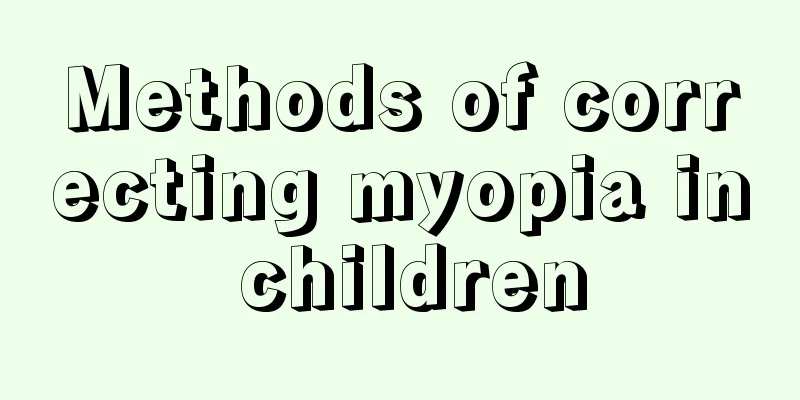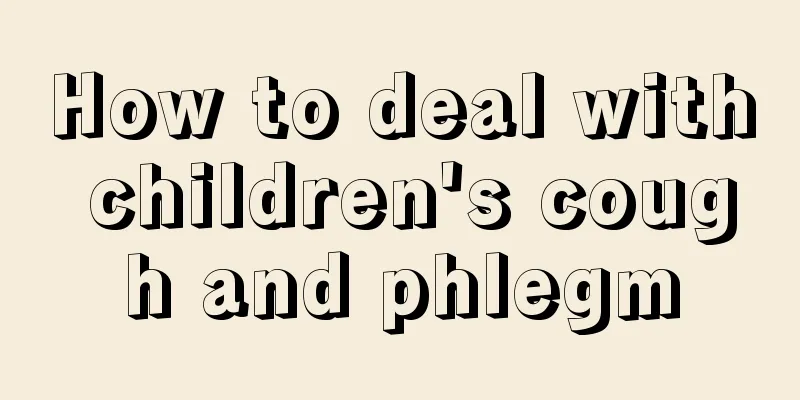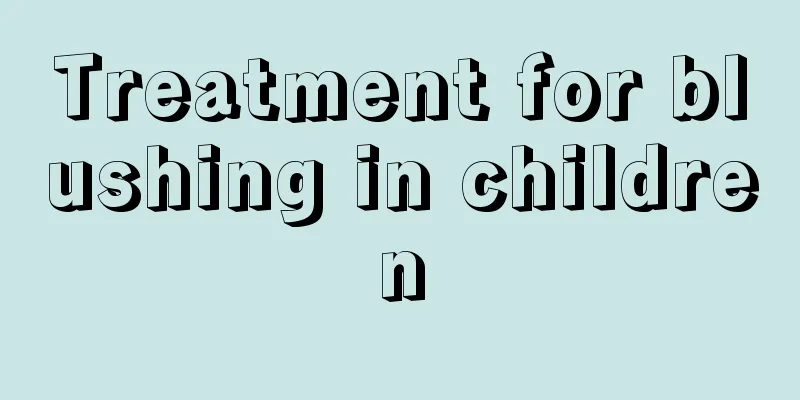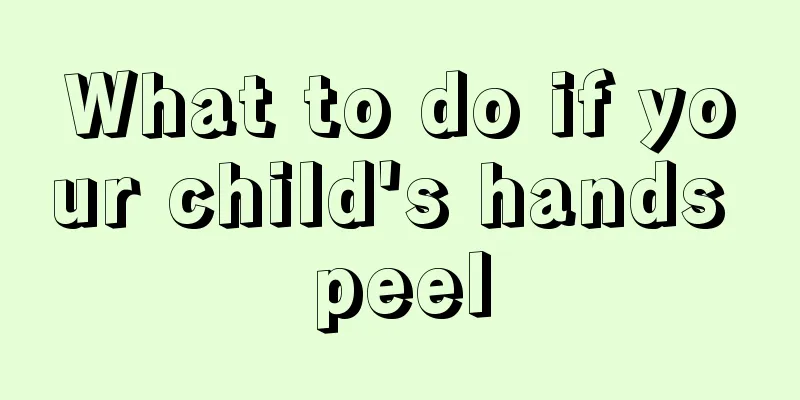What does hemolysis mean in children?

|
Hemolytic disease in a child refers to the incompatibility of the child's blood type with the mother's. The antibodies produced by the mother will destroy the red blood cells of the fetus. If no prenatal check-up is performed during pregnancy, the child will suffer from hemolytic disease after birth, which will cause great harm to the child and may even be life-threatening. It is best to detect and treat hemolytic disease in children early. It can be treated with phototherapy. If the effect is not good, blood transfusion can be performed. To avoid this situation, it is best to do pre-pregnancy and pregnancy checkups. What does hemolysis mean for babies? 1. Fetal or neonatal hemolysis is usually caused by incompatibility of blood types between mother and child, and antibodies produced by the mother enter the fetus through the placenta. Rh incompatibility occurs when the mother's blood type is Rh-negative, the father's blood type is Rh-positive, and the fetus's blood type is Rh-positive. 2. During pregnancy, fetal red blood cells leak through the placenta and enter the mother's blood circulation (the most enter during delivery), inducing the mother to produce antibodies to the Rh factor (alloimmunity). In subsequent pregnancies, these antibodies enter the fetus through the placenta and dissolve the fetal red blood cells. The resulting anemia can lead to intrauterine fetal death. 3. In response to anemia, the fetal bone marrow can release mature red blood cells or nucleated red blood cells into the fetal circulation, causing fetal hemolysis. How to treat hemolysis in babies 1. Medication ⑴Western medicine. ① Plasma or albumin. ②Adrenal cortical hormone. ③ Enzyme inducers: phenobarbital, nicotine, should be used as early as possible. Using the two drugs together can improve the efficacy. ④Glucose and alkaline solutions. ⑵ Chinese medicine Traditional Chinese medicine can reduce jaundice, and in vitro tests have shown the effect of suppressing immune response. Commonly used prescriptions include: ① Sanhuang Decoction: 4.5g Scutellaria baicalensis, 1.5g Coptis chinensis, and 3g processed rhubarb. ② Yinchenhao Decoction: Yinchen 1.5g, Gardenia 9g, processed rhubarb 3g, and liquorice 1.5g. ③Xiaohuanglidan Granule: Artemisia capillaris 9g, Gardenia 3g, Rhubarb 3g, Imperatae rhizome 10g, Centella asiatica 6g, Poria 6g. You can choose any one of the above three prescriptions, take one dose daily, divided into several doses before breastfeeding. 2. Light therapy 3. Blood transfusion. Can hemolytic disease be prevented? Hemolytic disease often occurs in mothers who have experienced threatened miscarriage in early pregnancy or who are pregnant with their second child. If a woman who has a history of unexplained stillbirth, miscarriage, or severe neonatal jaundice plans to have another child, she and her husband should undergo an ABO blood typing test in advance to detect the presence of anti-A and anti-B antibodies in the body. This test is called an IgG antibody titer test. It can be performed in large general hospitals or large blood banks. Both parties need to have their blood drawn and the test results are usually available within a week. If the test value is outside the normal range, intervention must be carried out. Current intervention treatments generally combine traditional Chinese and Western medicine to prevent the occurrence of fetal and neonatal hemolytic disease. If no intervention is made, as the pregnancy progresses, the titer in the mother's body will gradually increase, and the chance of the fetus developing hemolytic disease will also increase. Women who are at high risk should undergo regular testing after becoming pregnant, generally with a follow-up check once a month. |
<<: What are the medicines for children to help digestion?
Recommend
What are the characteristics of children in kindergarten?
Generally speaking, children will go to kindergar...
The 8 best times to educate your children
American psychologist and family issues expert Ro...
What happens when a child vomits acid?
Careful parents may find that their children vomi...
Does neonatal jaundice mean the whole body turns yellow?
Whether a newborn baby will turn yellow all over ...
What are the reasons for the thinning hair of four-month-old babies?
Watching their baby grow up slowly, I believe tha...
Why do girls have less hair?
Girls attach great importance to their hair, beca...
What to do if your child has pus in his ears
Some children will have pus discharge from their ...
What to do if your one-year-old baby is deficient in zinc and calcium?
Many mothers are very concerned about the physica...
How to check for tuberculosis in children
Tuberculosis is known as the second largest infec...
What should I do if my child has low blood pressure?
The younger the child is, the more incomplete his...
What to do if your 2-month-old baby has less sleep time
Every family hopes that their baby can grow up he...
Reasons and solutions for babies' restless sleep at night
The baby does not sleep or sleeps restlessly. The...
What are the seven-month-old baby's diet
The baby can already sit at 7 months old. This is...
What should I do if my child has a fever of 38.5 degrees?
Nowadays, most families have only one child, and ...
How to treat sinusitis in children? Don’t worry too much
Children are prone to rhinitis because they are s...









